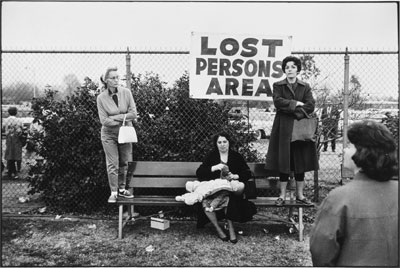Guy Fawkes, Parihaka and the morals of the stories
Thinking about Guy Fawkes a.k.a. Parihaka Day yesterday, I started wondering what’s actually represented by the debate over what to commemorate on November 5th.
The shallowest way of looking at it is to say that it’s a debate between sparkly explosive things and politics/history/thinking. But it takes only a little imagination to realise that we could set up a fireworks tradition on any night of the year we wanted; Matariki for example. So really this is just saying lazy status quo versus politics/history/thinking.
A deeper way of looking at it is as a debate between NZ historical awareness and imported British history and culture. Which is true enough. (This seems to be how this Stuff poll interprets it; in which case it’s darkly funny that 63% of people say “No, we already have Waitangi Day”).
But the best way I can think of to understand it is to see Guy Fawkes Night vs. Parihaka Day as a debate between two images of violence, two ways of dealing with terrorism and two myths of how to achieve peace.
Guy Fawkes Night embodies the dominant story, the myth of redemptive violence, Thomas Hobbes’ theory of the state, the plot of kids’ cartoons and CSI/NCIS/SVU/etc… It’s the idea that there are violent chaotic baddies everywhere, threatening our stability and our way of life… but, never fear, there are also good strong people and institutions, and the way to get peace and safety is for these good strong people to violently suppress the baddies and maintain order from the top down.
Guy Fawkes himself had this kind of vision for society, which is why he wanted to blow up the king and Parliament; but the king and Parliament’s vision was almost as bad, and theirs is the one that prevailed and the one that’s celebrated. As much as it’s lost its meaning now, traditionally Guy Fawkes Night has been the central festival of British patriotism, whipping up a frenzy of love and gratitude for the Crown which represents all that is good and safe, and an equally unthinking and passionate hatred for its enemies, who represent chaos and danger.
Parihaka Day embodies a very different story. In this story there are also dangerous forces of chaos, but the solution isn’t as easy as calling in the Crown to subdue them. In this story, the Crown aren’t the protectors from terrorism and the enforcers of order; like in Shelley’s classic poem The Masque of Anarchy, they themselves are the terrorists threatening peaceful people’s ways of life. In this story, the way to deal with violence and chaos and danger is for little people to have the wisdom to identify it at the centres of power instead of just on the margins, and the courage to oppose it with stubborn love. Unlike Guy Fawkes or the cartoons, there are no easy happy endings in this story… a grassroots, unenforced peace doesn’t always ‘win’, as it didn’t for Te Whiti and Tohu, but if we all came to the party, including the conscripts on the other side, it couldn’t lose.
So I think it’s what Parihaka Day represents, more than the public’s love of pretty explosions, that’s holding us back from from establishing an official Parihaka Day on November 5th. Peace is just too dangerous for the powerful when it’s not a peace imposed by them.


Yay for Parihaka Day! Is this what I missed out on last night? Coincidentally, I read up about this, LAST NIGHT. Defs an important, albeit less victorious, part of kiwi history: http://www.teara.govt.nz/en/moriori/4 .
I’m going to share this on Facebook before you get a chance, fool!
LikeLike
I have researched James Belich on the New Zealand wars , John Scott on Parihaka and am totally supporting Parihaka peace day to replace Guy Fawkes day on 5th November.My first 20 years was lived between Whanganui and New Plymouth , but we were never taught the truth. Titokowaru’s victories over the imperial British army, Te Whiti Rongomai’s pasifism at Parihaka.
My maternal great great Grandfather was the missionary Richard Taylor 30 years in Whanganui, a highly respected mediator between maori and pakeha.
Quote from his book,Te Ika A Maui. New Zealand and its inhabitants, published 1855.
” the head chiefs must be acknowledged by the government as officers ; they must be treated and consulted as such.Their native rights as British subjects, claim to be represented as much as our own; and until they are, there is no advantage derived by them from their alliance with us.’ unquote.
I have a long career as a New Zealand sculptor, a member of the green party and would welcome any correspondence on this issue
peter Nicholls
0221640456
03 4710791
peternichollssculptor@gmail.com
LikeLike
Kia ora Peter. I had ancestors who were missionaries at around the same time and place – will have to get the names. We might be related 🙂
LikeLike